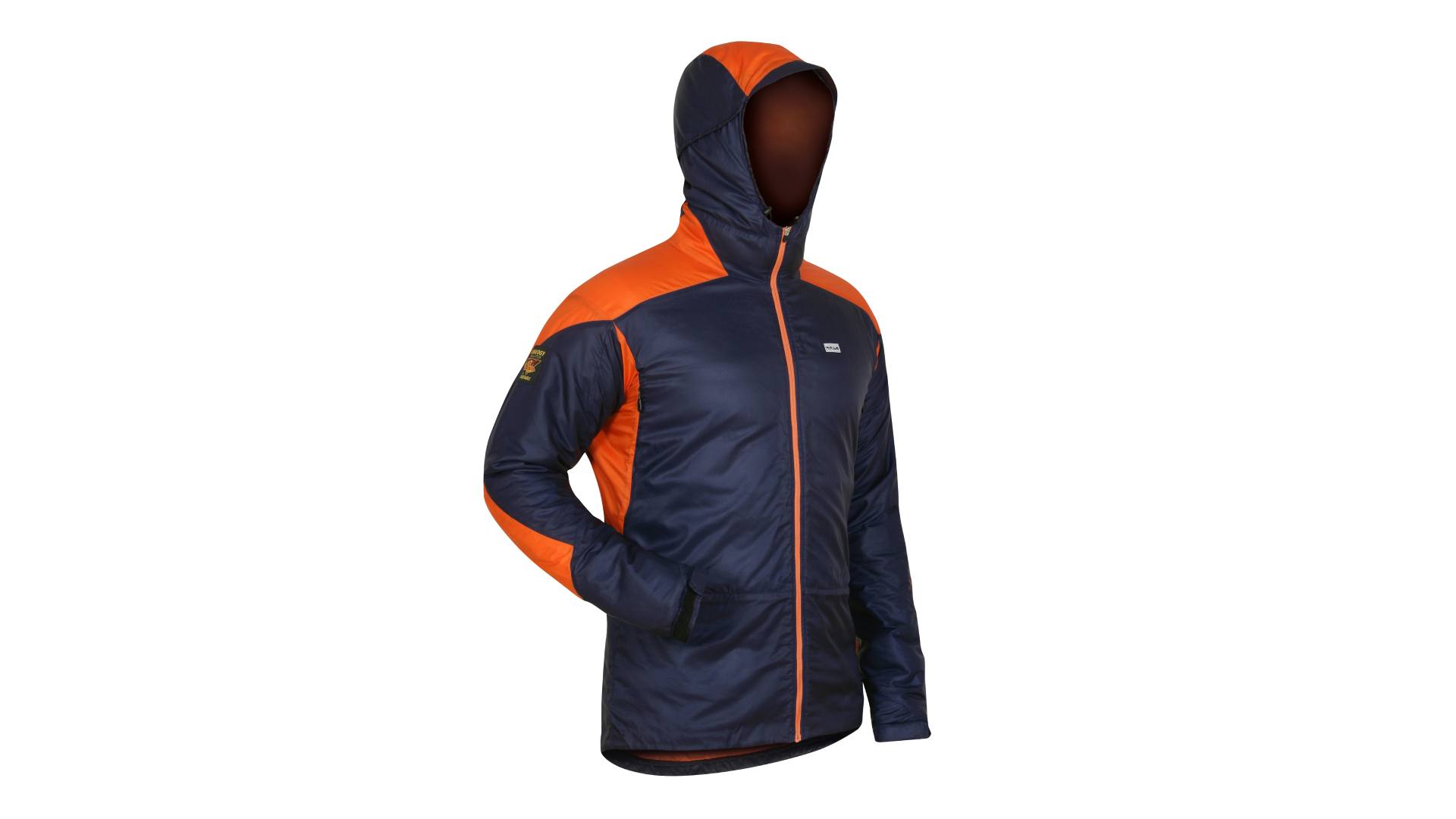Advnture Verdict
Versatile and cleverly designed (very occasionally a little too-cleverly for its own good), the Páramo Torres Activo will look after you extremely well on everything from mountain escapades to wild walks in the hills.
Pros
- +
Synthetic fill is quick-drying and provides warmth even when wet
- +
Block insulation minimises cold spots
- +
Lighter and more packable than comparable jackets
Cons
- -
Overall fit is broad, even slightly baggy in the chest
- -
High pockets are awkward to place your hands in
- -
Polyester face fabric comparatively less durable than nylon
You can trust Advnture
First impressions
If you hang around with enough British trad climbers, you’ll probably have seen them donning big, chunky synthetic belay jackets – which are basically all-weather armour for the coldest, longest stances in exposed locations. The oversized Páramo Torres Medio is a variant of this classic outdoor layer. It’s a synthetic jacket that is designed to be thrown over all your other layers, including a waterproof, providing instant block insulation in tough conditions. This version, the Páramo Torres Activo puffer jacket, can be regarded as that coat's little brother. Though it can be used in the same way, it isn’t quite as warm or as heavy, meaning it also has the versatility to be employed as a reasonably lightweight and packable extra layer for mountain missions, wild camps or cold days on the trail. The 60g Nikwax Insulator fill also has all the classic benefits of synthetic insulation: it is hard-wearing, quick-drying and stays warm when wet.
- Check out the best down jackets and puffers available right now
- Whatever you're looking for, we can tell you how to choose a down jacket
- Down vs synthetic fibre: which is the best option for you?
• RRP: £185 (UK)/€240 (EU)
• Weight: 469g/16.5oz
• Size: S–XXL
• Colours (men's): Midnight/Puffin’s Bill
• Colours (women's): Midnight/Carmine
• Fill: 60g Nikwax Insulator fill
In the field
Given its intended range of use, the cut of the Páramo Torres Activo puffer jacket is a little more generous than most synthetic jackets to allow for layering underneath, with clever spiral-cut sleeves to ensure full freedom of movement. You also get a great ‘halo’ peaked hood with a cutaway profile for improved peripheral vision, zipped side pockets that are placed high up so as to be harness or hipbelt friendly, and long arms with Velcro cuff tabs to really cinch in the sleeves, even over a pair of gloves. The internal pocket doubles as a stuff pocket for easy packing. The windproof face fabric adds to the general feeling of all-round protection from the elements and is treated with a PFC-free Nikwax DWR to add weather resistance.
Though the face fabric isn’t recycled, the synthetic fill features 55% recycled content to reduce the product’s environmental impact. Surprisingly for Páramo, which is renowned as one of the greenest outdoor brands, that stat actually lags behind some rivals a little on the sustainability front, as many brands are now using 100% recycled fabrics and fills. The face fabric is also made from polyester rather than nylon, which means it is softer but comparatively less durable.
Those side pockets are also placed so high that it’s actually a little tricky to get your hands in them, and the fit across the chest seems strangely baggy, a result of attempting to cover both the bases in terms of allowing room for layering as well as freedom of movement. Despite those quirks, this is a jacket that we’d happily pack in our rucksack for everything from winter climbing trips to summer wild camps, demonstrating its impressive versatility.
An outdoors writer and editor, Matt Jones has been testing kit in the field for nearly a decade. Having worked for both the Ramblers and the Scouts, he knows one or two things about walking and camping, and loves all things adventure, particularly long-distance backpacking, wild camping and climbing mountains – especially in Wales. He’s based in Snowdonia and last year thru-hiked the Cambrian Way, which runs for 298 miles from Cardiff to Conwy, with a total ascent of 73,700 feet – that’s nearly 2½ times the height of Everest. Follow Matt on Instagram and Twitter.


